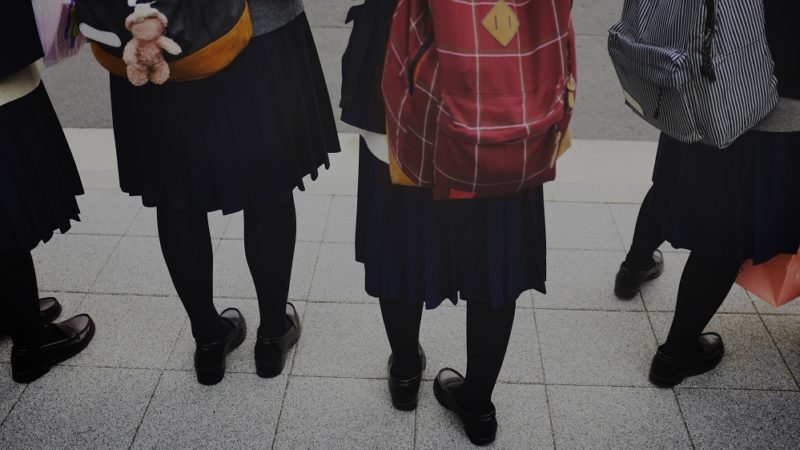Formal education is critical to the people of Japan. Families often begin considering their child’s schooling before the child can even speak, enrolling them in preschool programs as soon as possible, and encouraging learning from a very young age. Because of the extremely competitive nature of Japanese schooling and the workforce, it is essential to local parents to ensure that their child will have every possible advantage of moving forward.
It is just as accurate for expatriate families living in Japan. These families may not have the same motivating factors, but they want excellence in education for their children just the same. They also expect an education that caters to their cultural and linguistic background, namely, teaching in English.
While English is certainly not the national language of Japan and not all expatriate families are English speakers, the majority of children from these families not only learn English, it is their primary language during school and in the workforce afterwards. It is because English is widely taught and spoken across the globe, uniting cultures of international schools by offering students a common ground.
What are International Schools?
International schools are exceedingly popular in Japan, both for expatriate families and those who want to give their children an edge in both education and their adult life. It is because international schools are privately owned and operated, offering a higher standard of excellence in terms of curricula and content. They are also primarily comprised of English education, helping to immerse local students in the language and giving expatriate children something familiar through which to learn.
The purpose of the international school is to offer a consistent curriculum and educational experience for children, regardless of where their families relocate. It is essential since many expatriate families will move again sometime during their child’s schooling. By attending an international school, children who only reside in Japan temporarily will have a positive impact when they move elsewhere.
Why Are There So Many International Preschools?
Suppose you have multiple children in an expatriate community. In that case, you may notice that there are far more options for your English-speaking preschoolers and kindergarteners than there are for the older children. While Japan is still home to plenty of educational opportunities for primary and secondary international schooling, it is undeniable that the number of international preschools far outpaces both.
It is because native Japanese families are so fond of the idea of English-speaking preschools for their children. They enroll their children in these institutions to ensure that they will be fully immersed in the language and be more fluent English speakers by the time they enter primary school. It gives their children a distinct advantage over peers when English instruction is the ultimate goal – and necessitates many more private, international preschools than primary or secondary institutions!
Popular Curricula in Japanese International Schools
There are many options for international schools in Japan in terms of curricula. These vary by the age of your child, so keep in mind that not all programs are available to all age groups.
The two most common approaches to primary school curricula in Japan are those that reflect the local educational standards – those used in Japanese public schools – and more specialized curricula used in private schools. The latter may include approaches like Montessori or Waldorf, each with its own merits in providing a holistic and comprehensive education for children.
Schools may better serve kids who expect to be moving back to their home countries or moving to another nation soon with a localized curriculum. It gives them the maximum benefit in terms of cultural immersion and gives them the most authentic “taste” of Japanese culture. For many expatriate families, this is very important.
Families who expect to be staying in Japan for a long time may be more interested in curricula that are student-focused, such as the more specialized content offered by Waldorf and Montessori. It gives children a better foundation for growth and helps them to feel grounded in the learning environment and the country itself.
Secondary school is different for expatriate students. Here, parents will need to help students make decisions about what they want their education to look like. Are they interested in university studies after high school, or would they instead enter the workforce? Do they have different plans entirely after secondary school ends, some of which might benefit from the attendance of specialized booster programs in cultural or language studies? All of these are factors to consider since Japanese international schools often tailor the approach of secondary learning to the end goal of students and families.
The best international schools in Tokyo and across Japan are those that combine elements of multiple curricula and tailor their approaches to meet the individual needs of students. What works for some children won’t work for others, and industry experts understand this. Those who develop these curricula work closely with educators, students, and parents to ensure that the content and approaches they curate are the most beneficial at every age and stage.
Secondary school is different for expatriate students. Here, parents will need to help students make decisions about what they want their education to look like. Are they interested in university studies after high school, or would they rather enter the workforce? Do they have different plans entirely after secondary school ends, some of which might benefit from the attendance of specialized booster programs in cultural or language studies? All of these are factors to consider, since Japanese international schools often tailor the approach of secondary learning to the end goal of students and families.
The best international schools in Tokyo and across Japan are those that combine elements of multiple curricula and tailor their approaches to meet the individual needs of students. What works for some children won’t work for others, and industry experts understand this. Those who develop these curricula work closely with educators, students, and parents to ensure that the content and approaches they curate are the most beneficial at every age and stage.












